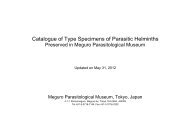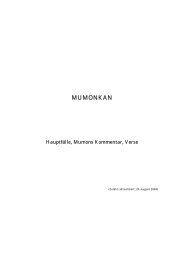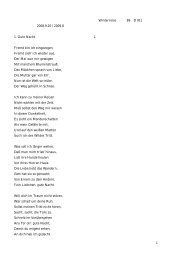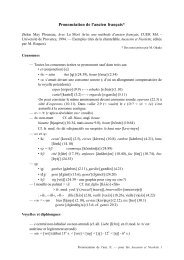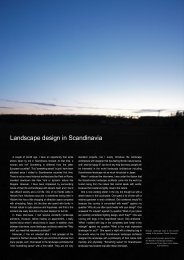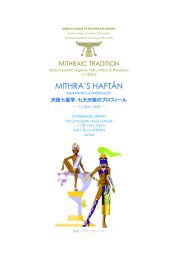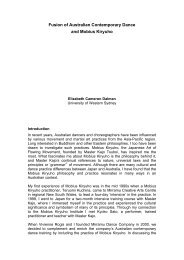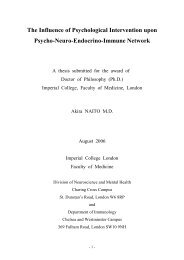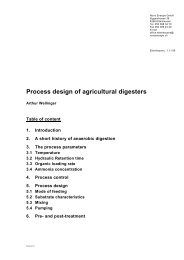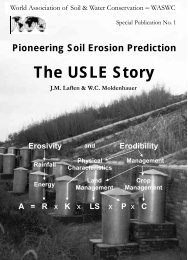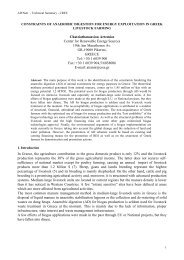III. No-Till Farming Systems - nifty
III. No-Till Farming Systems - nifty
III. No-Till Farming Systems - nifty
You also want an ePaper? Increase the reach of your titles
YUMPU automatically turns print PDFs into web optimized ePapers that Google loves.
• Encourage and develop awareness, discussion and consideration of good conservation<br />
practices among associated organizations.<br />
• Liaise, consult and work in conjunction with environmental organizations on the<br />
development and promulgation of global environmental and conservation policies,<br />
strategies and standards.<br />
Recent Developments: The WASWC has had to face some serious problems in<br />
recent years and, as a result, some important changes have taken place. The cost<br />
of running WASWC has increased over the years and, at the same time, membership<br />
numbers dropped to below 400. The drop in numbers was partly because a<br />
membership fee of even US$10 per year is a considerable amount of money for<br />
many members from developing countries. Added to this, is the problem of paying<br />
in dollars and transferring relatively small sums of money internationally. To<br />
overcome these problems, a number of important steps have been taken. First, a<br />
concerted effort has been made to recruit new members. As part of this campaign,<br />
an effort has been made to improve the services provided to members. This has<br />
included improving the quality and length of the quarterly newsletter and distributing<br />
it by e-mail. Second, a flexible system of membership fees has been introduced<br />
which means that members can join for as little as US$5 and US$10 per<br />
year for respectively developing and developed countries. Third, a program of<br />
decentralization has also been launched with the appointment of several more<br />
Vice Presidents and the establishment of National Representatives, now covering<br />
approximately 100 countries. This program is not only bringing our association<br />
closer to members but has also provided other advantages including a system<br />
whereby it is now possible for local organizations to collect membership fees in<br />
local currencies and to pay the secretariat in bulk. Fourth, the WASWC council<br />
has become more actively involved in encouraging regional and local meetings,<br />
conferences and other useful activities. Fifth, the WASWC council offers 1-year<br />
Guest membership to persons who have participated at any technical meeting<br />
worldwide, if they wish so. As a result of these measures, membership has risen<br />
to several thousands in 2007.<br />
Another major change has been the move of the WASWC secretariat from the<br />
SWCS in the U.S.A. to Beijing in China, on April 1, 2003. It is now hosted by the<br />
Ministry of Water Resources. The WASWC appreciates the generous help that it<br />
received from the SWCS over the 20 years that the SWCS ran its secretariat and<br />
intends to maintain a close association with it in the future. However, the Council<br />
believes that this move will have a number of advantages. Our Chinese hosts<br />
have offered very generous terms for the running of the secretariat; we will have<br />
the opportunity to work in a country where running costs are relatively low and<br />
where there is considerable technical expertise available and of interest to many<br />
of our members. The most recent development is the establishment of our main<br />
website at the Guangdong Institute of Eco-Environmental and Soil Sciences in<br />
Guangzhou, in the southern part of China, to offer services to our members along<br />
with the other one in Tokyo, Japan, supported by ERECON.<br />
533



